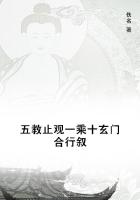But, whatever to a modern eye are the singularities of these Codes, their importance to ancient societies was unspeakable. The question -- and it was one which affected the whole future of each community -- was not so much whether there should be a code at all, for the majority of ancient societies seem to have obtained them sooner or later, and, but for the great interruption in the history of jurisprudence created by feudalism, it is likely that all modern law would be distinctly traceable to one or more of these fountain-heads. But the point on which turned the history of the race was, at what period, at what stage of their social progress, they should have their laws put into writing. In the western world the plebeian or popular element in each state successfully assailed the oligarchical monopoly; and a code was nearly universally obtained early in the history of the Commonwealth. But in the East, as I have before mentioned, the ruling aristocracies tended to become religious rather than military or political, and gained, therefore, rather than lost in power; while in some instances the physical conformation of Asiatic countries had the effect of ****** individual communities larger and more numerous than in the West;and it is a known social law that the larger the space over which a particular set of institutions is diffused, the greater is its tenacity and vitality. From whatever cause, the codes obtained by Eastern societies were obtained, relatively, much later than by Western, and wore a very different character. The religious oligarchies of Asia, either for their own guidance, or for the relief of their memory, or for the instruction of their disciples, seem in all cases to have ultimately embodied their legal learning in a code; but the opportunity of increasing and consolidating their influence was probably too tempting to be resisted. Their complete monopoly of legal knowledge appears to have enabled them to put off on the world collections, not so much of the rules actually observed as of the rules which the priestly order considered proper to be observed. The Hindoo code, called the Laws of Menu, which is certainly a Brahmin compilation, undoubtedly enshrines many genuine observances of the Hindoo race, but the opinion of the best contemporary orientalists is, that it does not, as a whole, represent a set of rules ever actually administered in Hindostan. It is, in great part, an ideal picture of that which, in the view of the Brahmins, ought to be the law. It is consistent with human nature and with the special motives of their author, that codes like that of Menu should pretend to the highest antiquity and claim to have emanated in their complete form from the Deity. Menu, according to Hindoo mythology, is an emanation from the supreme God; but the compilation which bears his name, though its exact date is not easily discovered, is, in point of the relative progress of Hindoo jurisprudence, a recent production.
Among the chief advantages which the Twelve Tables and similar codes conferred on the societies which obtained them, was the protection which they afforded against the frauds of the privileged oligarchy and also against the spontaneous depravation and debasement of the national institutions. The Roman Code was merely an enunciation in words of the existing customs of the Roman people. Relatively to the progress of the Romans in civilisation, it was a remarkably early code, and it was published at a time when Roman society had barely emerged from that intellectual condition in which civil obligation and religious duty are inevitably confounded. Now a barbarous society practising a body of customs, is exposed to some especial dangers which may be absolutely fatal to its progress in civilisation.
The usages which a particular community is found to have adopted in its infancy and in its primitive seats are generally those which are on the whole best suited to promote its physical and moral well-being; and, if they are retained in their integrity until new social wants have taught new practices, the upward march of society is almost certain. But unhappily there is a law of development which ever threatens to operate upon unwritten usage. The customs are of course obeyed by multitudes who are incapable of understanding the true ground of their expediency, and who are therefore left inevitably to invent superstitious reasons for their permanence. A process then commences which may be shortly described by saying that usage which is reasonable generates usage which is unreasonable. Analog, the most valuable of instruments in the maturity of jurisprudence, is the most dangerous of snares in its infancy. Prohibitions and ordinances, originally confined, for good reasons, to a single description of acts, are made to apply to all acts of the same class, because a man menaced with the anger of the gods for doing one thing, feels a natural terror in doing any other thing which is remotely like it. After one kind of food has interdicted for sanitary reasons, the prohibition is extended to all food resembling it, though the resemblance occasionally depends on analogies the most fanciful.
So, again, a wise provision for insuring general cleanliness dictates in time long routines of ceremonial ablution; and that division into classes which at a particular crisis of social history is necessary for the maintenance of the national existence degenerates into the most disastrous and blighting of all human institutions -- Caste. The fate of the Hindoo law is, in fact, the measure of the value of the Roman code. Ethnology shows us that the Romans and the Hindoos sprang from the same original stock, and there is indeed a striking resemblance between what appear to have been their original customs. Even now, Hindoo jurisprudence has a substratum of forethought and sound judgment, but irrational imitation has engrafted in it an immense apparatus of cruel absurdities. From these corruptions the Romans were protected by their code. It was compiled while the usage was still wholesome, and a hundred years afterwards it might have been too late. The Hindoo law has been to a great extent embodied in writing, but, ancient as in one sense are the compendia which still exist in Sanskrit, they contain ample evidence that they were drawn up after the mischief had been done. We are not of course entitled to say that if the Twelve Tables had not been published the Romans would have been condemned to a civilisation as feeble and perverted as that of the Hindoos, but thus much at least is certain, that with their code they were exempt from the very chance of so unhappy a destiny.
Ancient Law
by Henry Maine















